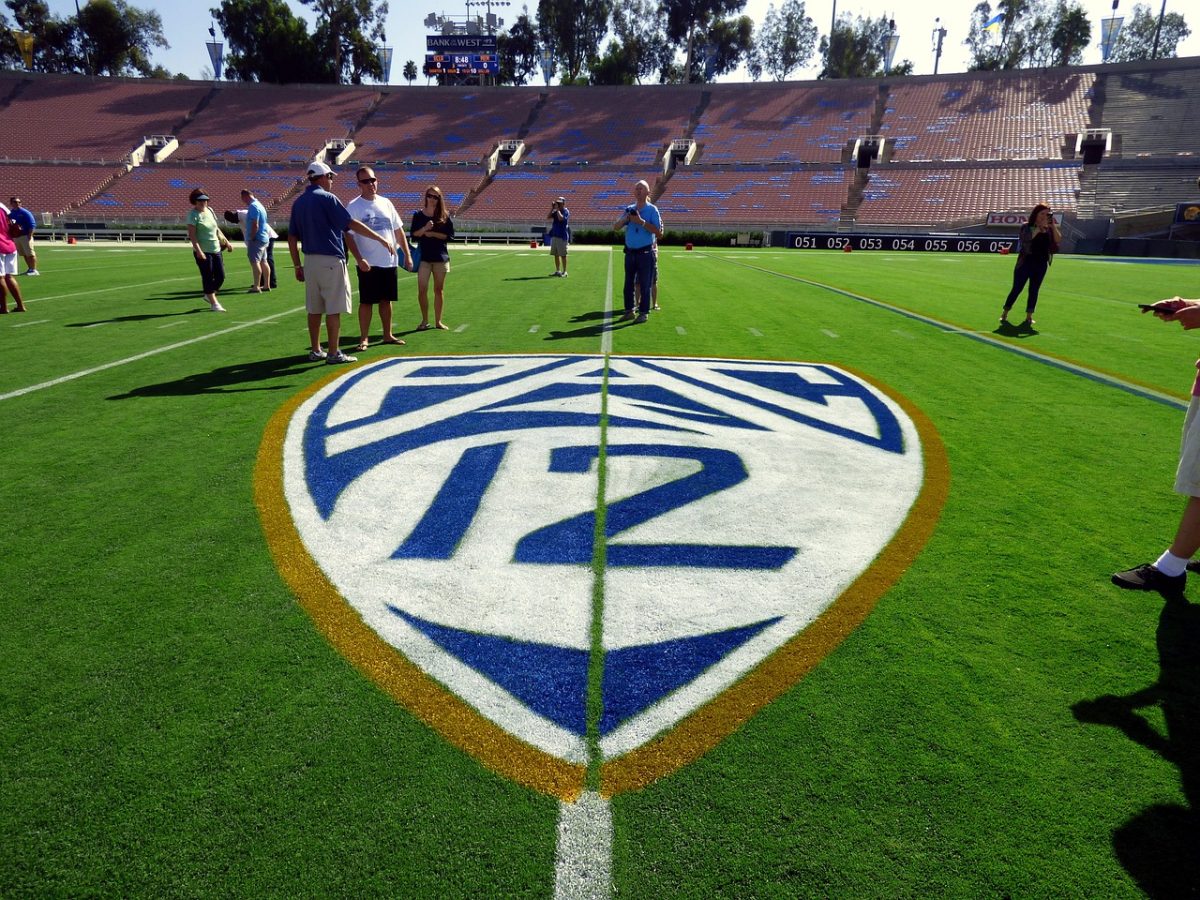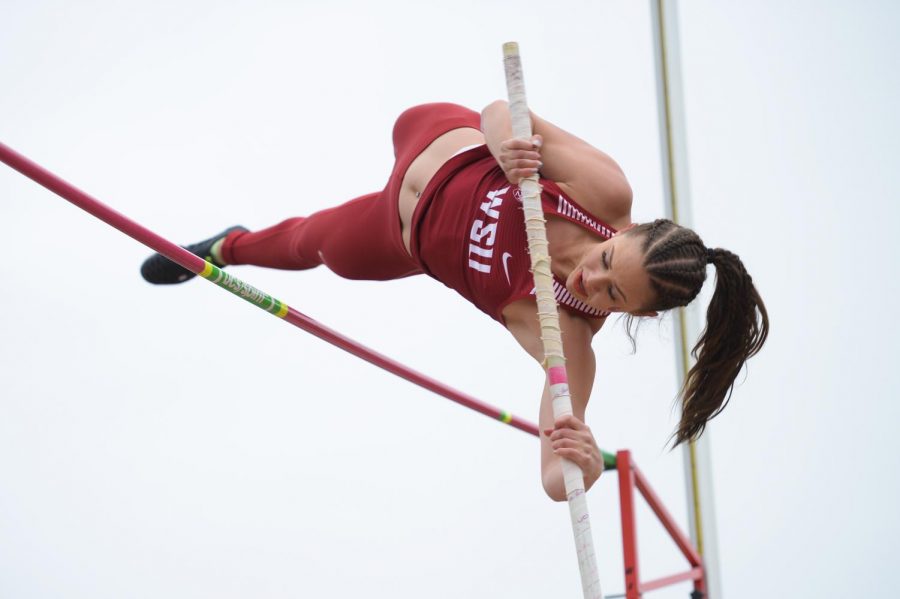In the middle stages of June, WSU Athletics made an announcement that shocked everyone. After record-setting performances in the NCAA qualifiers and several top-20 finishes in the NCAA Championship, WSU track and field was taking a hard cutback.
Sprints and hurdles, events where the Cougs placed 15th and 20th in the championship, were reduced moving forward. Throwing and jumping events were not so lucky, getting cut altogether.
The news hit athletes like a bucket of cold water.
“I was in shock… The biggest emotion was confusion,” junior jumps competitor Eli Lawrence said. “Especially because of how late in the year they told everyone. It feels like the school I have grown to love has abandoned us.”
Lawrence was not alone in that sentiment.
“I was surprised,” said senior sprints competitor Ashley Hollenbeck Willems. “I was not expecting the cuts, especially after the success of the sprint squad the past couple seasons.”
“[I felt] initial shock, I did not believe that it was real,” said sophomore throws competitor Nevaeh Wilson.
“I was in disbelief,” junior sprints competitor Parker Duskin said. “How do you take that away from me and my teammates? You tell us in a Zoom call?”

Parker Duskin representing WSU for Track and Field
Duskin, alongside Mason Lawyer, Bryson Stubblefield and Keenan Kuntz, recently set a school record in the 4×100-meter relay, running the event in 39.09 seconds during this year’s NCAA qualifiers.
“I understand we needed to make some sacrifices, but to simply gut one of WSUs most successful programs makes no sense,” Duskin said. “The sprints and jumps have held the most weight.”
Although WSU Athletics announced that they will help with the transfer process for athletes, the timing and abruptness of the cuts make transferring an uphill battle.
“It has been very overwhelming,” sophomore sprints competitor Brooke Lyons said. “Most of us spent at least a year trying to figure out where we would commit to in high school. Now we are limited to about a month.”
“Entering the portal late has put us at a huge disadvantage. Had we known right when our season ended, we could have been in the portal weeks earlier. I am being forced to make this huge decision while simultaneously grieving and leaving the place I have made my home.”
The late start for athletes in the portal leaves them in a state of limbo, which can be distressing.
“The process has been difficult,” Willems said. “It is extremely late in the summer, and the transfer portal has been open for a while now.” “Track programs have filled up their rosters and have given out most of their scholarships… I am very disappointed in the way this decision has been communicated… There was no warning.”
Even for athletes who have concluded their time at WSU, they understand the chaos and strain that transferring puts on young athletes.
“Having been through the transfer portal, it’s not an easy process,” said recent graduate and throws competitor Laura Linquist. “I can’t imagine how much harder it is with the nationwide roster reductions.”

Laura Lindquist competing in the hammer throw for WSU Track and Field
Lindquist has since moved on to her professional career, but the news of the cuts shook her just the same.
“I feel for my teammates who were betrayed by WSU and now need to enter the portal to have a chance to continue competing,” Lindquist said. “They each made a commitment to WSU. Transferring to WSU provided me with a program that supported me and allowed me to progress as an athlete. I just wish more athletes could get to experience that.”
Betrayal is just one of the many emotions that the cuts incited.
“I am more disappointed with the athletic department,” Lawrence said. “To remove half of the track team is a move that no one was expecting…. It is just disappointing.”
“I think that the school disappointed all of us,” Wilson said.
Lyons echoed her disappointment with the school she grew up with.
“I am so disappointed with WSU’s decision. I have grown up a Coug,” said Lyons. “Both my parents, a bunch of my extended family and my sister all attended WSU. I basically knew the cougar fight song before my ABCs.”

WSU Sprinter Brooke Lyons running alongside her fellow teammates and members of the University of Idaho track and field team.
Lyons’ long family history with WSU makes this development even harder.
“Being a Coug means being loyal to the program despite difficult times,” said Lyons. “Even without a conference, I was going to stay at WSU because I wanted to be a Coug. Now my opinion on WSU may never be the same… Even my die-hard [WSU] parents are struggling to continue a relationship with their Alma Mater.”
Duskin shares that feeling and explains how out of character the cuts are with the school’s identity.
“It’s just sad. I’ve been a Coug my whole life. My mom, dad, grandma, grandpa, aunt, uncle, cousins… you name it,” Duskin said. “This simply isn’t the Cougar way. We’re a land grant university, we can’t take these opportunities away from kids who want to come and compete for our school… We fight for everything we got! We have always had our hardships and came out swinging.”
Even though WSU is continuing sprints and hurdles in a limited setting, for some athletes, that just isn’t enough.
“Despite them saying sprints and hurdles would be limited, I do not think that is a real option,” Lyons said. “They immediately told us that resources would be limited if we chose to stay. They also said we could stay at WSU and keep our scholarship without competing but for the amount we have all put into our sport, quitting is far from an option.”
This continuation of scholarships, while meant to be a gesture of goodwill, can seem like a slap in the face.
“Honestly, I find them offering this as an option to be a bit insulting, as all these athletes have given so much to the program and worked so hard,” Lyons said. “How could they expect us to just give up?”
Track and field is far from the flashiest sport on the Palouse. It does not hold the same popularity or flair that football and basketball do. However, its importance to the WSU community is invaluable.
“I will miss my teammates the most. I already know so many of my teammates are leaving Pullman,” Lawrence said. “The community I was a part of will be gone, and the friendships I made will not be the same. Everyone cheering each other on at meets was the best part about competing.”
“Track and field, while not considered a revenue sport, helps build community and builds pride within the university,” Lyons said. “This is what college sports are intended to do, not to make a profit. I don’t only fear for the future of track at WSU, but the athletics program as a whole…. Just like that, a huge part of a 100+ year old program is lost and likely will never be the same.”
Lyons’ fears for track and field are not exclusive to her.
“Track and field will be forgotten within the university,” Willems said. “Removing throws, sprints, hurdles and jumps effectively disintegrated all the momentum the program had gained through the past three years.”
“It simply won’t be successful,” Duskin said. “How would a football team do without receivers or a D-line? Two-thirds of all points scored at the national level are sprints and field.”
Smaller sports like track and field have always been on the chopping block. They just can’t compete with the size and weight that football and basketball carry in the media. When space needs to be made in the budget, it will often come at the cost of batons.
However, for many athletes, these cuts feel less like pruning and more like clear-cutting. Students who have worked their whole lives to get to the college level have had a part of their world taken away.
They are shocked, confused, disoriented, disappointed and betrayed… and visibly so. What other cuts lay on the horizon is unknown, but if track and field is any indicator, they may come at the times least expected.











Carey Edwards • Jun 28, 2025 at 9:55 pm
The decision was apparently made before nationals so why has there been no other major announcements for other sports?
This all makes me sick and ashamed of WSU.
Joshua Lyons • Jun 27, 2025 at 5:42 am
The administration has done absolutely nothing in the wake of this decision to support displaced athletes while Anne McCoy galavants around Washington DC. Treating these kids as if they were part of a purely transactional relationship is gross. This will continue under McCoy and Cantwell’s leadership. More people will have something to say when they come for baseball and swimming.